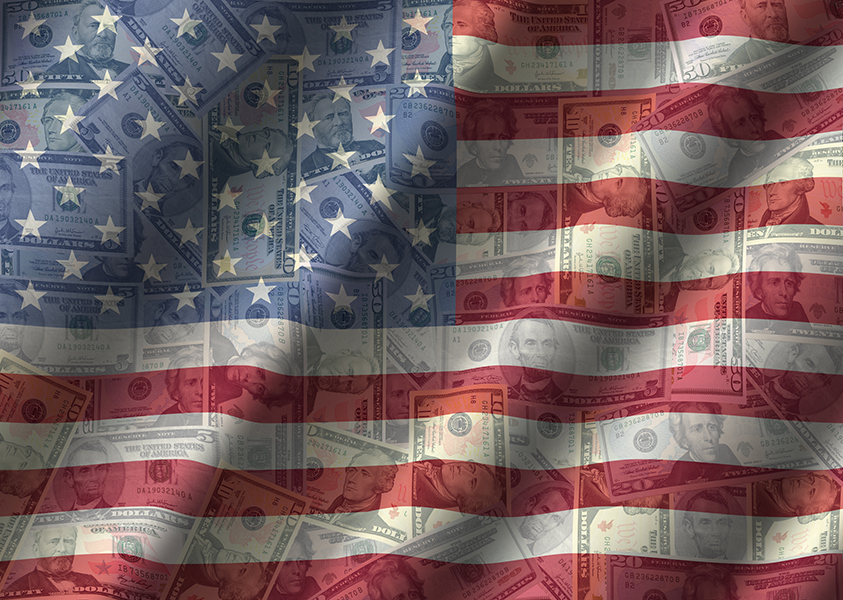It’s painfully obvious that lawmakers in Sacramento just can’t help themselves. Otherwise Gov. Jerry Brown and a majority of legislators wouldn’t support a $52 billion tax hike to fix California’s gouged, pitted and cracked roads. They would find a way to do it with the resources they have.
Republicans at least tried. Led by Assemblyman Vince Fong, they proposed an alternative that would have actually dedicated $5.6 billion annually to transportation infrastructure without new taxes. Of course, this plan went nowhere at the State Capitol.
So on the first Thursday in April, Brown and legislative Democrats jammed the biggest gas tax hike in state history through both legislative chambers.
California already has some of the stiffest fuel taxes in the country. The American Petroleum Institute reports that total state taxes and fees on a gallon of gasoline are 38.13 cents and 40.01 cents for a gallon of diesel. This would give California the nation’s second-highest gas taxes.
The financial hit for the average family is at least $1,000 a year. That’s about $275 more than the average U.S. household. This doesn’t include already higher fuel prices driven upward by state environmental rules, which will grow to an estimated 63 cents per gallon by 2021 according to a recent Legislative Analyst’s Office estimate.
Under the bill, the excise tax on gasoline will jump by 12 cents a gallon to 30 cents, and by 20 cents on diesel to 36 cents. The diesel sales tax will grow from 1.75 percent to 5.75 percent. Vehicle license fees will also increase – from $25 for cars worth up to $4,999, up to $175 for autos worth more than $60,000.
Keep in mind that this money will primarily go to road repair, not new construction. A portion will be fed to the political mass transit monster. No surprise. Sacramento has a history of using fuel tax revenue for such unrelated projects as bicycle paths and facilities, pedestrian walkways, recreational trail projects, safe-school routes and mass transit. Maybe if that money had gone to its proper use over the decades, the roads wouldn’t have fallen into such disrepair.
There is also Sacramento’s record of inefficient spending. The Legislative Analyst Office found during an audit three years ago that the Governor’s proposals for modest job cuts at CalTrans would still result in it “being overstaffed by about 3,500” employees “beginning in 2014-15, at a cost of more than $500 million.” Howard Jarvis Taxpayers Association president and California Policy Center contributor Jon Coupal noted last year that California’s state auditor had just “concluded that a primary responsibility of Caltrans . . . is not being executed in a manner that is even close to being efficient or competent.”
Meanwhile, the Reason Foundation reports that Sacramento “spends 4.7 times as much per mile of state-controlled highway as the national average.”
“More specifically, for every $1 Texas spends on its highways, California spends $5.80. For every $1 Michigan spends on its highways, California spends $3,” said Reason Vice President of Policy Adrian Moore in 2014.
Despite the spending, California ranked far below Michigan and Texas in highway conditions, “so while spending a lot less per mile, those states are able to have much better road conditions,” said Moore.
In a sense, California’s road problems are similar to its housing crisis: government burdens make both enterprises too expensive to undertake. In the case of transportation infrastructure, demanding environmental review imposes costly restrictions. In addition, pro-union labor agreements required by the state result in Californians “shelling out as high as 25 percent more than they should for building highways and bridges,” says Coupal.
Though the Governor made an impassioned plea to fix the roads, don’t read too much into it. He and other policymakers want to force as many Californians out of their cars through a two-pronged approach:
First, neglect maintenance, and allow roads to become so hopelessly congested that drivers would rather deal with the aggravations of public transit than sit in traffic and crack up their cars on the roads – at a cost of more than $2,800 a year for Southern California drivers.
Next, propose repairs with a price tag so high that many motorists will see no choice but to ditch their cars and climb into buses and trains to avoid the higher taxes.
As always, there’s concern new revenues will be redirected to politically-favored projects not related to car travel.
“Why would anyone believe that this regressive new tax won’t be diverted to pay for the high-speed rail boondoggle?” Northern California’s Republican Sen. Ted Gaines asks.
The better plan would be to do the exact opposite – move funds from the unneeded high-speed rail to needed road work.

